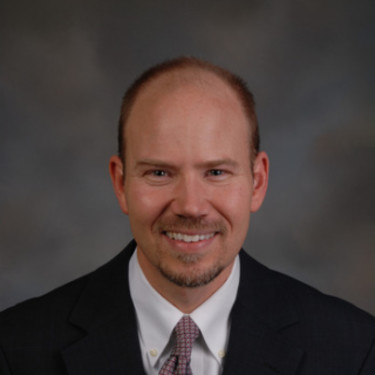I’ve often thought about what makes a medical practice successful. Too many times, I’ve heard “They have a great practice — it takes forever to get an appointment!” To me, that seems contradictory. A great practice should be one that has imminent availability, not availability six months or a year from now. A great practice should be able to see you today when you have a bad problem, not send you to the ER or urgent care. But I understand the implication — if you have a good reputation, you are in high demand. You are a scarce commodity, so that results in a long wait for an appointment. The patient is lucky if their referring physician has access to a back phone line that will get them in quickly, but for the vast majority of patients, they will wait, and wait … or, they will seek care elsewhere.
Supply and demand are alive and well in medicine in the U.S., and the laws that dictate them apply. I’ve had colleagues tell me that they never have an available same day or even same week appointment because it looks bad for their practice. The perception that they are in such high demand that they cannot see you for at least two months is important for practice success. If the doctor can see you today, they must not be that good! If they can limit access, patients will pay more to see them. I believe that this philosophy has given rise to the boutique practice of medicine — pay for access, since the doctor is that worthy. It is not that there is a true scarcity, but there is a perceived one. It’s akin to the business model used by diamond brokers — perception over truth. There may be tons of patients out there in need, but if the practice can isolate their doctors to a manageable schedule with “easy” patients who pay well, why should they care? Maybe these are the smart physicians in our profession: protecting themselves from burnout and getting paid more for doing less.
Payer mix is a term you learn early in practice. As a young physician, you ask yourself why you are not bringing in the same revenue as your more established partners, even though you seem to be seeing more patients and working longer hours. The administrator explains to you that your payer mix is not yet “optimized.” They add that as your practice matures, you will see patients who have insurance that pays better and you will no longer have to see the Medicaid or Medicare patients, enabling you to see fewer patients and make more money.
The ”three A’s” of practice-building (availability, ability, and affability) do apply to the new practice, but not so much to the mature practice. Those three A’s work really well if you want to be busy. I’ve always thought that availability is the critical A, especially for your referring doctors. Affability is most important to your patients, and sadly, ability is probably the least important. However, after that practice is built, it seems that the three A’s no longer apply.
I think we have equated a successful practice with financial success. I am not naïve — I know that money is needed to run a practice. However, all the success in the above paragraphs has nothing to do with appropriate care of patients. Now, what is appropriate care of patients? As a surgeon, I believe that it is pretty simple: Do you do unnecessary surgery on patients? Do you always give them the option of observation when it is a reasonable one? Do you recognize the ridiculous conflict of interest you have in being rewarded more for doing more to your patients? I’m not going to address knowledge or surgical skill, since we all finished residencies and probably board examinations that determined we met the minimum requirements. I’m not sure that a capable physician is a necessity for a financially successful practice. I do believe that it may eventually catch up with the incompetent physician, but not before a lot of money is made, and a few patients are harmed.
The dangerous message is the one we send to our doctors in training. Those “successful” practices are often admired and put on a pedestal, even though I sometimes believe that the mission of medicine isn’t necessarily being followed in those practices. They look “good”, but are they really “good”? That type of practice is seductive — I admit that I myself have been tempted by these shiny objects. But I think some of us have lost our way with regards to why we went into medicine to begin with. We get caught up in the peer pressure of having the perception of a “successful” practice. We feel obligated to fit into this model of a successful practice with a long wait for an appointment, fancy offices, and a lot of staff. And, in order to afford that high overhead, we isolate ourselves from those who are truly in need. The administrators encourage us to improve our “payer mix.” And in the end, we follow someone else’s dream, rather than our own, which to me is a cardinal sin.
My trainees tell me of the adventures they have when they are trying to figure out what environment to work in and where to work. My advice to my young protégés is to be true to themselves and find the practice that fits the values of care, relationship-building, and compassion they had when they went into medicine. I’d like to think that they did not go into medicine for the money, because truthfully, there are much easier ways for smart people to make money than medicine. I tell them to work for their dreams and not someone else’s. This can be very difficult when we have all of the outside pressure to have a “successful” practice. I ask them to strip away all of those external influences and realize what brings them happiness. I will hear how they were interested in practicing in a particular community and were told that “there just isn’t any room” for another physician who does what they do there. This is often told to them by the practice that has the six-month wait for an appointment. I always tell them that there is definitely room for a capable, ethical physician in any community. “If you build it, they will come.”
So, what is a successful practice? I would argue that it is the practice that allows you to do medicine in a fashion congruent with the ideals you had when you entered medical school. Of course, this also has to allow for you to put food on the table for your family. However, we continue to relinquish control of medicine to administrators and private equity who hide behind us to fleece the medical-industrial complex for their own advantage. This isn’t just a disadvantage to us, but a disservice to our patients. When we buy into the dream of the administrator to make money off of our labor, we turn our backs on our patients rather than turning our hearts to them. Making our skills a scarce resource, in order to maximize our perceived value and satisfy the whims of the administrator, restricts our access to the patients who need our help the most.
What’s your definition of a “successful practice”? Share in the comments!
Dr. Richard Allen is an oculoplastic surgeon in Houston, TX. He practiced at St. Erik’s Eye Hospital in Stockholm, Sweden from September to December of 2024 as a visiting professor. He is an avid cyclist and enjoys spending time with his wife outdoors. Dr. Allen is a 2024–2025 Doximity Op-Med Fellow.
Image by Pensee Sauvage / Shutterstock







